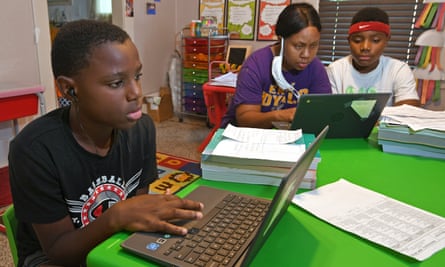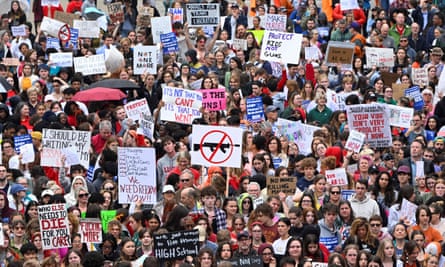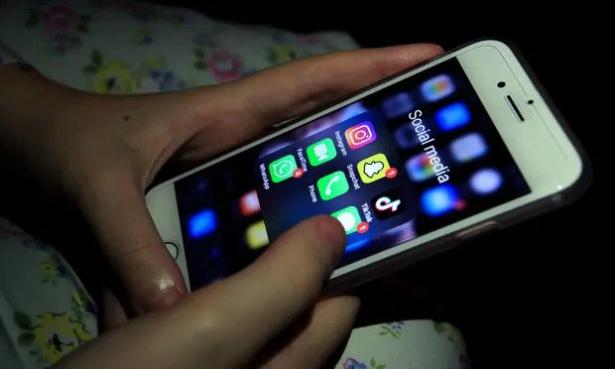This country faces a longstanding mental health crisis, exacerbated by the isolation, fears and uncertainties of the pandemic. This crisis affects all generations, but has been especially devastating for young people.
In America today, 40% of parents report being either extremely or very worried that their child is struggling with anxiety or depression.
What I have learned is that our young people today face challenges that no generation in modern history has ever been forced to deal with. The pandemic, the worst public health crisis in over 100 years, created fears in children about whether they or their loved ones would get sick or die. That’s an anxiety not easily dealt with by young, developing minds. And let us not forget: over 200,000 children did lose one or both of their parents to Covid and millions more saw relatives and acquaintances become sick or hospitalized. That grief and fear remains long after any national emergency is declared over.
The pandemic also brought about a massive disruption in the normal, day-to-day lives of our youth. For the first time in modern history our young people, by the millions, stopped attending school. Not only was their education severely impacted, but so were their social lives. No more getting together with friends after school or on weekends. No more dating. No more team sports. No more theater or chorus. No more doing the normal things that their parents and older brothers and sisters did.
But it was not just the pandemic’s impact on health that affected our young people. The pandemic also brought forth an unprecedented level of economic anxiety. It was only a few years ago that, as a result of Covid, millions of workers lost their jobs, lost their health insurance and were worried about being evicted from their homes and apartments. We can all remember the long lines of Americans lining up for emergency food boxes to feed their families. When parents lose their jobs, when they struggle to pay the rent, when they worry about putting food on the table and how to get the healthcare they need, their children are often struggling quietly beside them.

‘For the first time in modern history our young people, by the millions, stopped attending school.’ Photograph: Christopher Millette/AP
And young people know something else. This economy is not working for them. Unless we bring about long-needed reforms, their generation will have a lower standard of living than their parents’. How are they going to afford to go to college or pay off their student debts? Will they ever be able to buy their own home or afford healthcare? Young people are worrying about these things on a daily basis.
And then there is the radical impact that screen time and social media have had on the younger generation, something that previous generations have never experienced. According to a recent survey, most kids are spending more than five hours a day on social media or playing video games. Thirty-two per cent of teens surveyed said they were online for five to six hours, 17% reported being online for seven to eight hours and 13% said they were online nine or more hours a day.
What is the impact of all that screen time?
Well, according to a recent study, 32% of teen girls said that when they felt bad about their bodies, Instagram made them feel worse.
More than 40% of Instagram users who reported feeling “unattractive” said the feeling began on Instagram.
About 25% of teenagers who reported feeling “not good enough” said it started on Instagram.
But it’s not just Instagram. The same can be said for Twitter, Facebook, Snapchat, TikTok and other social media platforms.
And let’s be clear. When it comes to social media, we are up against some of the most creative minds in the world, who keep coming up with new ways to get teenagers addicted to their sites in order to sell them more products and make more money. Clearly, the mental health damage they do to millions of young people is much less important to them than the huge profits they are reaping.
Two other issues have also kept emerging in my discussions with young people.
They are deeply concerned about climate change – and whether the planet that they and their children will be living on will be healthy or habitable. And they also question their government and the kind of political leadership in this country that has allowed this existential threat to occur.
And then there is the issue of gun violence. Incredibly, there have been well over 200 mass shootings in the United States this year. They have taken place in virtually every state in the country. Almost all public schools in America now have active shooter drills. For many kids, obviously, the thought of such an attack is extremely frightening and can have a profound impact on their mental health.
That is just some of the tragic reality affecting the mental health of tens of millions of young people in our country today.
And what are we doing to address this crisis? The answer is: not much.

‘Incredibly, there have been well over 200 mass shootings in the United States this year.’ Photograph: John Amis/AFP/Getty Images
Further, even with decent insurance, it is hard for many to find the psychiatrists, psychologists, addiction counselors or social workers where they live. As a nation, our healthcare workforce, especially in mental health, is woefully inadequate.
Right now, as chairman of the health, education, labor and pensions committee, I am working hard with my staff to address the mental health crisis within the current political realities we face. We are drafting legislation to greatly increase the number of mental health providers in the country and get them into the schools and communities where they are needed most. We are also fighting for a major increase in federally funded health care clinics so that anyone in this country, regardless of income, can get the healthcare they need - including mental health services.
But, as important as increasing availability to mental health treatment is, we have got to do much more if we’re going to address the root causes of this crisis.
In my view, if we are truly going to resolve the mental health crisis that we face, we will need a political revolution that creates a society based on justice, compassion, human solidarity and a growing sense of community. We can no longer abide the grotesque level of corporate greed that pervades every aspect of our economy. We must move to a society in which people are treated as human beings, not commodities.
Our goals are clear. We need to create an economy that works for all, not just the 1%. We need to give hope to those who have lost hope. We need to revitalize democracy, bring new people into the political process and end the corrupt campaign finance system we now have. We need to end all forms of bigotry.
Is any of this easy? No. Those who own and control our economic and political systems have endless resources at their disposal to maintain the destructive status quo. But the simple truth is that we have no moral choice. If we truly care about our kids and grandchildren, if we care about the very future of our planet, we must stand up and fight back.
Let’s do it.
-
Bernie Sanders is a US senator and chairman of the health education labor and pensions committee


Spread the word